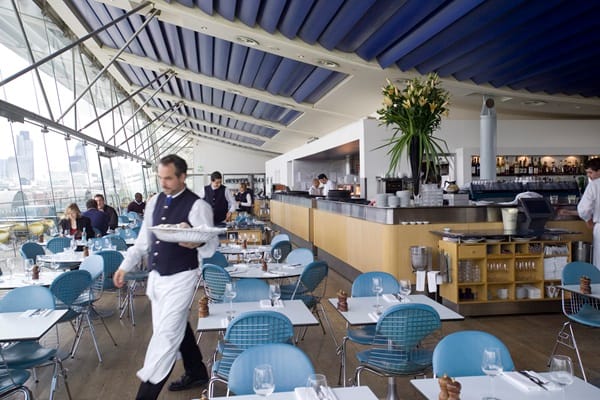In London’s fast-paced hospitality industry, efficiency, speed, and customer experience are not just expectations — they are business-critical. From Michelin-starred dining to cozy neighborhood cafés, the capital’s restaurants face increasing pressure to deliver seamless service and personalised experiences, even before the guest walks through the door. One of the most powerful tools helping restaurants meet these expectations is digital transformation — especially in the realm of table reservations.
How Technology is Helping London Restaurants Stay Ahead with Better Reservation Systems is more than a trend-driven headline. It describes an essential shift in the way restaurants manage capacity, reduce no-shows, optimise workflows, and build customer loyalty. As consumer expectations rise and operational challenges grow, a new generation of tools is stepping in to help restaurateurs not only survive but thrive.
At the heart of this transformation are advanced reservation management systems, offering real-time visibility, automation, and smarter customer data management. These platforms are revolutionising how London’s restaurants handle bookings, cancellations, walk-ins, and special requests — while helping businesses adapt dynamically to fluctuating demand.
Why traditional booking methods no longer cut it
Not long ago, phone calls, email inquiries, and handwritten books were the standard for managing reservations. While charming in their simplicity, these methods are also vulnerable to human error, double bookings, and communication breakdowns. As customer expectations for fast, frictionless interactions increase, outdated booking systems can seriously undermine a restaurant’s service quality and reputation.
Manual systems limit visibility across teams and prevent proactive management. They don’t allow for seamless integration with other digital tools like POS systems, CRM databases, or marketing platforms. Worse, they offer little in the way of data collection — meaning lost insights on customer habits, visit frequency, or preferences that could help personalise the guest experience.
“In a city like London, where competition is fierce and margins are tight, the ability to manage reservations with precision is no longer optional — it’s a strategic necessity.”
Switching to modern systems isn’t just about convenience; it’s about gaining the ability to plan ahead, forecast accurately, and respond in real time. For example, live availability across channels prevents overbooking, while automated confirmation emails and SMS reminders help reduce costly no-shows. Ultimately, technology bridges the gap between operational excellence and customer satisfaction.
Operational benefits of smart reservation systems
Modern reservation platforms are no longer just digital diaries — they’re fully integrated tools that synchronise front-of-house operations, staff scheduling, guest communication, and even marketing. For London restaurants dealing with high volume, limited space, and tight shift patterns, this can translate into a dramatic increase in efficiency and profitability.
By automating core tasks such as confirmations, table assignments, waitlist management, and cancellations, restaurant staff can focus more on guests and less on admin. A digital system gives hosts and managers a real-time overview of capacity, upcoming reservations, and walk-in demand — allowing for smarter decision-making, better pacing of service, and an overall smoother guest flow. When a system is connected to a POS or kitchen display, insights into dining durations and table turnover can further refine seating strategies.
An additional benefit is how these platforms handle last-minute adjustments. Whether it’s a table needing to be combined, an unexpected large party, or a guest arriving early or late — with the right software, adjustments can be made on the fly with minimal disruption to the floor plan or staff coordination. In a high-demand city like London, where table time is money, these seemingly small optimisations can make a significant difference.
Here are just a few operational benefits restaurants report after implementing smart reservation tools:
- Reduced no-show rates through automatic reminders and deposit features
- Improved guest flow via dynamic table assignment and pacing tools
- Stronger communication between hosts, servers, and kitchen staff
- Less manual work and increased focus on hospitality
- Better insights into peak times, table turnover, and guest behaviour
Personalising the guest experience through data
One of the most exciting aspects of reservation technology is its ability to collect and utilise guest data in real time. Every booking becomes an opportunity to learn more about a customer’s preferences, visit history, dietary needs, special occasions, and more. This information, when used ethically and securely, empowers staff to deliver personalised service that turns first-time diners into loyal regulars.
Imagine a guest who always requests a window seat or orders a vegan entrée — the system can flag that detail in advance of the visit, allowing staff to prepare proactively. If a couple celebrated an anniversary last year, that note can prompt a special greeting or complimentary dessert the next time they book. This level of attentiveness doesn’t just feel luxurious — it fosters emotional connection and loyalty in a highly competitive landscape.
With access to detailed guest profiles, restaurants can also tailor their marketing. For example, sending exclusive offers to frequent diners, birthday messages with booking incentives, or early-bird access to tasting menus. Smart platforms often include built-in CRM tools or integrations with platforms like Mailchimp, which allow restaurants to segment and nurture their audience effectively.
| Feature | Benefit for the Restaurant | Benefit for the Guest |
| Guest profiles with history | Personalised service, tailored offers | Feeling seen, remembered, and valued |
| Automated communication | Time savings, professional touch | Timely confirmations, reduced confusion |
| CRM and marketing tools | Targeted campaigns, loyalty building | Relevant content, exclusive experiences |
| Analytics & reporting | Smarter decisions, better forecasting | Consistent service during busy periods |
Future trends: Mobile-first, AI integration and beyond
As the hospitality industry continues to digitise, London restaurants are embracing next-generation technologies that go far beyond simple bookings. One of the most dominant trends is the mobile-first approach. Diners expect to book a table anytime, anywhere — whether it’s via a restaurant’s website, Google listing, Instagram, or third-party app. Reservation platforms that support seamless mobile integration and offer responsive design are therefore essential to meet user expectations and avoid missed bookings.
The future also belongs to systems powered by AI and machine learning. These technologies enable platforms to make intelligent suggestions for seating arrangements, forecast busy periods based on weather or events, and even anticipate guest behaviour patterns. This predictive capability empowers restaurants to plan resources better, reduce waste, and enhance the customer journey with minimal manual intervention.
Voice search, too, is gaining momentum. With more people using digital assistants like Siri and Alexa to find and book restaurants, reservation systems that are compatible with voice-enabled platforms will have a strong competitive edge. And with continued integration into tools like Google Reserve or TripAdvisor booking engines, restaurants can expand their reach and visibility across multiple channels.
Looking further ahead, here are some developments restaurants should keep an eye on:
- AI-powered waitlist suggestions and dynamic pricing during peak times
- Voice and chatbot reservation options via smart assistants or messaging apps
- Real-time loyalty integrations that reward guests automatically at booking
- Deeper POS integration to personalise menu recommendations based on guest history
- Advanced analytics dashboards that highlight actionable revenue opportunities
London’s restaurant landscape is evolving rapidly — and the businesses that embrace tech will be those that lead the way.
Why embracing reservation tech is no longer optional
In the ever-evolving culinary capital of London, standing still is not an option. The restaurants that succeed are those that blend tradition with innovation — offering warm hospitality while leveraging cutting-edge tools behind the scenes. Smart booking solutions aren’t just a matter of convenience; they are critical to survival in a competitive, experience-driven market.
How Technology is Helping London Restaurants Stay Ahead with Better Reservation Systems is best understood as an ongoing journey. It’s about investing in systems that support both short-term efficiency and long-term growth. Platforms lprovide the infrastructure to deliver outstanding service, gather meaningful insights, and create lasting guest relationships.
Restaurants that embrace this evolution will not only streamline their operations — they’ll turn every booking into an opportunity to connect, impress, and grow. In the digital age, smart reservations aren’t a luxury. They are the backbone of modern hospitality.








